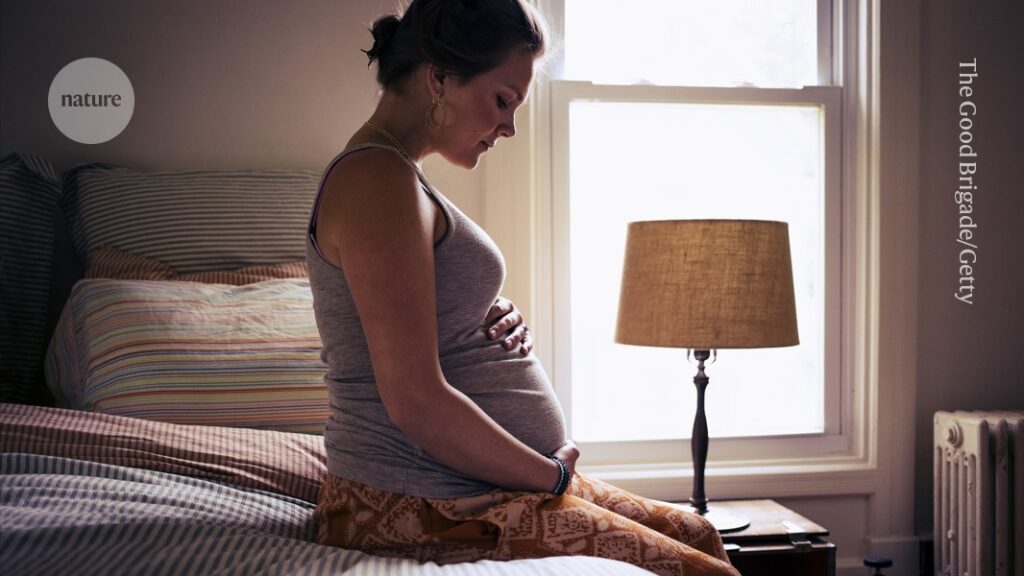There are limited options for pain relief during pregnancy.Credit: The Good Brigade/Getty
Researchers are concerned about what will happen should pregnant women follow US President Donald Trump’s advice to avoid the painkiller Tylenol — also called paracetamol and acetaminophen. In an address at the White House on 22 September, Trump claimed the medication is linked to autism and other long-term neurodevelopmental conditions in the developing child. But experts warn that avoiding the drug when it is needed could place women and their fetus at even greater risk.
Paracetamol is one of the most widely used drugs during pregnancy and is generally considered safe. It is commonly used to relieve pain and reduce fevers, including those caused by viral infections such as the common cold and bacterial infections that cause urinary-tract or kidney conditions.
On Monday, the US Food and Drug Administration (FDA) announced that acetaminophen products would have a new warning label that lists a possible association between taking the drug and an increased chance of attention deficit hyperactivity disorder (ADHD) and autism in children. FDA commissioner Marty Makary said in a statement that the change “may lead many to avoid using acetaminophen during pregnancy”. Trump was more direct: “Fight like hell not to take it,” he said.
The advice has been rejected by physicians, medical organizations and health regulators in many countries, including the American College of Obstetricians and Gynecologists, the UK Medicine and Healthcare products Regulatory Agency and the Australian Therapeutic Goods Administration. The World Health Organization said in a statement that there is no “conclusive scientific evidence confirming a possible link”. The drivers of ADHD and autism are complex and genetics plays a large part.
Untreated fever
But there is evidence that leaving a fever untreated, particularly if it is high (above 39.1 °C) or lasts longer than 24 hours, raises the risk of negative outcomes during pregnancy, says Debra Kennedy, a women’s health researcher at the University of New South Wales (UNSW) in Sydney, Australia. “It’s been associated with an increased risk of miscarriage and some birth defects,” she adds, including spinal and heart defects and abnormal facial features. Women should not have to be in discomfort from pain or a fever unnecessarily when there is no convincing evidence that taking paracetamol will cause harm to their child.
There is some evidence that untreated high temperatures during pregnancy might increase the chance of autism and psychiatric disorders such as schizophrenia, because they can interfere with fetal brain development1. Kennedy warns that raising fear around paracetamol use could also lead women to use pain relief that is not as safe. “I definitely think there will be some women who will be reluctant to take paracetamol during pregnancy because of these statements,” she says, adding that other doctors have begun asking her for resources to provide to women expressing concerns about taking paracetamol during pregnancy.

